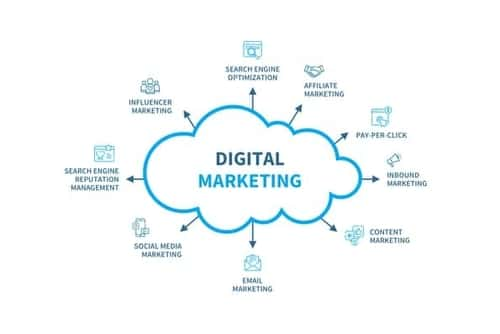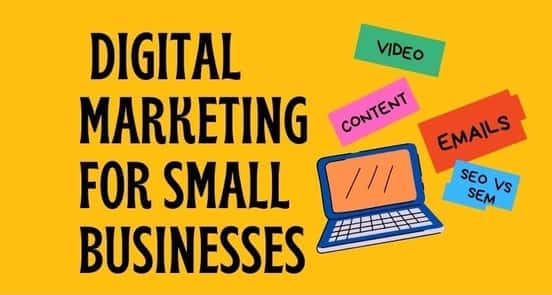Investing a huge amount in marketing can be a dilemma for the small business owners as that may shake of their entire budget. But Paid Marketing Helps Small Businesses if the execution is done by paid marketing professional company.
But there is a tremendous option for the small business owners and that is pay-per-click marketing. The entrepreneurs can plan to invest in this type of marketing as it will be charged as per the clicks and hence helps to meet the better prospects in a cost-effective way.
Here you can look at some of the paid marketing categories for your small business:
Paid Marketing Helps Small Businesses
Pay-per-click Marketing (paid marketing helps small businesses):
Paid marketing is one of the outstanding strategies to generate the targeted traffic and to convert them into leads as well as get a possibility to enhance the business. This will give a great opportunity to exhibit your ads on Google display network and produce traffic from many other sites.
As this says, pay per click, cost may vary according to per clicks you get on your keywords. But, the small business owners can take the advantage from this by targeting the users who have previously shown their interest in what you are offering.
So, this can be a cost-effective marketing plan for the small business owners than simply dispersion the promotion messages at extensive unknown spectators.
Shopping Ads (paid marketing helps small businesses):
This is also an amazing and affordable way to promote your ecommerce sites to display the products ads, boost traffic on your website and find better prospects. This is same like the pay per click marketing, as the advertiser will be charged only when the ads are clicked by the customers.
The only difference in shopping ads is you can show the users the image of your product, title, price and many more things than only simple text. These ads are created and published on Google and all around the web to make an impact and increase your products selling.
Branding Campaigns (paid marketing helps small businesses) :
Branding campaigns represent the companies by knowing their identity such as who are they, what they carry out, what sort of quality they supply, their status for reliability, and more.
Therefore, brand marketing is significant to almost every business those who are looking for new developing technologies for providing logistic support for their business.
This branding campaign is distinguished between two types of methods, they are: Display Advertising and Video Marketing.

1. Display Marketing: Here the entrepreneur gets an opportunity to display the ads on the Google display network which includes Gmail, YouTube, Blogger, Maps and many other channels of Google partners.
The small business owners can get a chance to generate good amount of traffic by displaying their ads on such popular domains. This can also lead to build a great brand and earn the trust of the audience towards your business.
2. Video Marketing: This is also a great platform for the entrepreneurs to post their ads in the form of video to attract the customers by developing innovative ads of the products.

These ads can be posted on some of the specific channels and on YouTube. Through this you can reach out your audience from wide and pay the amount as per the views.
Mobile App Advertising (paid marketing helps small businesses) :
This paid mobile app marketing is to communicate and target the users of Smartphone’s, tablets etc. Here the advertiser can develop an app as per their business needs and promote it in many diverse methods such as:
1. Mobile Web: Text tagline ads, mobile Web banner ads, rich media mobile ads
2. Multimedia Messaging Service: audio ads, video ads, short text ads, long text ads, banner ads, etc.
3. Mobile Video and TV Advertising Units: Ad breaks, linear ad breaks, nonlinear ad breaks, interactive mobile video and TV ads
4. Mobile Applications: In-app display advertising units, integrated ads, branded mobile applications, sponsored mobile applications.
Re-marketing (paid marketing helps small businesses) :
This is the most affordable way to advertise and get connected with the visitors who have already visited your website or clicked on your ads. It allows displaying the ads in front of the targeted audience as they start surfing elsewhere around the internet.

The re-marketing ads can be shown in the form of text or image to create an interest within those users in order to convert them into prospects. The ads are administered in Google Ad Words and are shown on web pages visited by your target audience that accept Google advertising placements.
Paid Marketing Helps Small Businesses
In the digital age, where competition is fierce and attention spans are fleeting, small businesses often struggle to gain visibility amidst larger, more established counterparts. However, with the advent of paid marketing strategies, the playing field has become more level, offering smaller ventures an opportunity to compete and thrive in the market.
Paid marketing encompasses various channels and tactics aimed at promoting products or services through paid advertisements.
These channels include social media advertising, Google Ads, paid search advertising, display advertising, and influencer marketing, among others. For small businesses, investing in paid marketing can yield significant benefits, contributing to their growth and success.
Importance of Paid Marketing for Small Businesses
Leveling the Playing Field
One of the primary advantages of paid marketing for small businesses is its ability to level the playing field.
Unlike traditional advertising methods that often require substantial budgets, paid marketing offers cost-effective solutions that allow smaller ventures to reach their target audience without breaking the bank.
Targeting Specific Audiences
Paid marketing provides small businesses with the opportunity to target specific demographics, interests, and behaviors, ensuring that their advertisements are seen by those most likely to engage with their products or services.
This targeted approach maximizes the efficiency and effectiveness of marketing efforts, resulting in higher conversion rates and increased return on investment (ROI).
Cost-Effectiveness of Paid Marketing
Budget-Friendly Options
Many paid marketing platforms offer flexible budgeting options, allowing small businesses to set their advertising budgets according to their financial capabilities. Whether it’s a modest investment or a more substantial allocation, businesses can tailor their spending to align with their objectives and goals.
Measurable ROI
Unlike traditional forms of advertising, paid marketing offers measurable results, enabling businesses to track the performance of their campaigns in real-time. Through analytics and reporting tools, small businesses can assess the impact of their marketing efforts, identify areas for improvement, and make data-driven decisions to optimize their strategies for better ROI.
Enhancing Brand Visibility
Building Brand Recognition
Paid marketing helps small businesses increase their brand visibility and awareness among their target audience. By consistently appearing in front of potential customers through advertisements across various channels, businesses can reinforce their brand message and build recognition, ultimately establishing themselves as trusted and credible entities in their respective industries.
Increasing Website Traffic
Paid marketing drives traffic to small business websites, increasing the likelihood of conversions and sales. Through strategic placement of advertisements on relevant platforms and channels, businesses can attract qualified leads and direct them to their online properties, where they can learn more about the products or services offered and take desired actions.
Generating Leads and Sales
Conversion-Focused Strategies
Paid marketing enables small businesses to implement conversion-focused strategies aimed at turning prospects into customers. By crafting compelling ad copies, utilizing persuasive call-to-actions, and optimizing landing pages for conversions, businesses can effectively guide users through the sales funnel and encourage them to make a purchase or take a desired action.
Lead Nurturing Techniques
In addition to generating immediate sales, paid marketing facilitates lead nurturing, allowing businesses to cultivate relationships with potential customers over time.
Through email marketing, retargeting campaigns, and personalized messaging, businesses can stay top-of-mind with prospects, provide value, and eventually convert them into loyal patrons.
Utilizing Social Media Advertising
Leveraging Platforms like Facebook, Instagram, and LinkedIn
Social media advertising offers small businesses a powerful platform to connect with their target audience and drive engagement.
With billions of active users on platforms like Facebook, Instagram, and LinkedIn, businesses can reach a diverse audience and tailor their advertisements based on demographic, psychographic, and behavioral data.
Engaging with Potential Customers
Through social media advertising, businesses can engage with potential customers in meaningful ways, fostering two-way communication and building rapport. By responding to comments, addressing inquiries, and soliciting feedback, businesses can humanize their brand and establish genuine connections with their audience, ultimately driving loyalty and advocacy.
Implementing Google Ads
Understanding the Google Ads Platform
Google Ads, formerly known as Google AdWords, is a powerful advertising platform that allows businesses to display their ads on Google’s search engine results pages (SERPs) and across its extensive network of partner websites and platforms.
With Google Ads, small businesses can target users actively searching for products or services relevant to their offerings, increasing the likelihood of conversions.
Optimizing Campaigns for Better Results
To maximize the effectiveness of Google Ads campaigns, small businesses must employ strategic optimization tactics. This includes conducting keyword research to identify relevant search terms, crafting compelling ad copies that resonate with users’ search intent, and continuously monitoring and adjusting campaigns based on performance data and insights.
Exploring Paid Search Advertising
Importance of Keywords
Keywords play a crucial role in paid search advertising, as they determine when and where ads appear in search engine results. Small businesses must conduct thorough keyword research to identify high-value keywords with sufficient search volume and relevance to their offerings, ensuring that their ads reach the right audience at the right time.
Creating Compelling Ad Copies
In paid search advertising, ad copies must be concise, compelling, and relevant to users’ search queries. Small businesses should focus on highlighting unique selling propositions, addressing pain points, and including clear calls-to-action that prompt users to click on their ads and take the desired action, whether it’s making a purchase, signing up for a newsletter, or requesting more information.
Leveraging Display Advertising
Targeting Through Visuals
Display advertising allows small businesses to showcase visually appealing ads across a network of websites, blogs, and apps, reaching users as they browse the internet. By leveraging eye-catching visuals, compelling messaging, and strategic placement, businesses can capture the attention of their target audience and drive brand awareness and engagement.
Retargeting Strategies
Retargeting, also known as remarketing, involves serving ads to users who have previously visited a business’s website or interacted with its online content.
This tactic allows small businesses to stay top-of-mind with potential customers, reminding them of products or services they’ve shown interest in and encouraging them to complete their purchase or take the next step in the conversion process.
Incorporating Paid Influencer Marketing
Partnering with Influencers Relevant to the Business Niche
Influencer marketing has emerged as a popular and effective paid marketing strategy for small businesses, allowing them to leverage the credibility and influence of individuals with large social media followings.
By partnering with influencers relevant to their niche or industry, businesses can reach new audiences, build trust, and drive engagement and conversions through authentic and relatable content.
Harnessing Their Audience Reach
Influencers have a dedicated and engaged audience that trusts their recommendations and opinions. By collaborating with influencers to create sponsored content or endorsements, small businesses can tap into this audience reach and leverage it to promote their products or services in a more organic and impactful way, resulting in higher levels of engagement and conversion.
Overcoming Challenges in Paid Marketing
Adapting to Algorithm Changes
In the ever-evolving landscape of digital marketing, small businesses must stay agile and adapt to changes in algorithms and policies across various paid marketing platforms. This requires staying informed about industry trends, experimenting with new strategies and tactics, and being prepared to pivot and adjust strategies as needed to maintain effectiveness and relevance.
Competing with Larger Businesses
While paid marketing offers opportunities for small businesses to compete with larger counterparts, it also presents challenges in terms of budget limitations and resource constraints.
To overcome this, small businesses must focus on leveraging their unique strengths and advantages, such as agility, creativity, and personalized customer experiences, to carve out their niche and differentiate themselves in the market.
Measuring Success with Analytics
Tracking Key Performance Indicators (KPIs)
Measuring the success of paid marketing efforts requires tracking key performance indicators (KPIs) relevant to business objectives and goals. These may include metrics such as click-through rate (CTR), conversion rate, return on ad spend (ROAS), and customer acquisition cost (CAC).
By analyzing these metrics and comparing them against benchmarks and targets, small businesses can evaluate the performance of their campaigns and make informed decisions to optimize their strategies for better results.
Adjusting Strategies Based on Data Insights
Data insights derived from analytics play a crucial role in optimizing paid marketing strategies for small businesses.
By analyzing performance data, identifying trends and patterns, and understanding user behavior, businesses can gain valuable insights into what’s working well and what areas need improvement. This enables them to refine their targeting, messaging, and creative elements to better resonate with their audience and drive desired outcomes.
Conclusion About How Paid marketing helps small businesses :
Small business owners can get the most benefits, if they follow the paid marketing strategies that are discussed in the above article to meet the business goals.
In conclusion, paid marketing offers small businesses a powerful and cost-effective means of promoting their products or services, reaching their target audience, and driving engagement and conversions.
By leveraging various paid marketing channels and tactics, businesses can level the playing field, enhance brand visibility, generate leads and sales, and overcome challenges to achieve success in the competitive digital landscape.
As technology continues to evolve and consumer behaviors shift, small businesses must remain adaptable, data-driven, and innovative in their approach to paid marketing to stay ahead of the curve and drive sustainable growth and profitability.
FAQs About Paid Marketing Helps Small Businesses
-
Is paid marketing suitable for all types of small businesses?
Paid marketing can be beneficial for a wide range of small businesses, but it’s essential to tailor strategies and tactics to align with specific objectives, target audience, and industry nuances.
-
How can small businesses measure the success of their paid marketing efforts?
Small businesses can measure the success of their paid marketing efforts by tracking key performance indicators (KPIs) such as click-through rate (CTR), conversion rate, return on ad spend (ROAS), and customer acquisition cost (CAC).
-
Are there any risks associated with paid marketing for small businesses?
While paid marketing offers numerous benefits, there are potential risks, including budget limitations, competition, and changes in algorithms or policies. However, with strategic planning, monitoring, and optimization, these risks can be mitigated.
-
How often should small businesses review and adjust their paid marketing strategies?
Small businesses should regularly review and adjust their paid marketing strategies based on performance data and insights. This may involve weekly or monthly assessments to ensure campaigns are optimized for maximum effectiveness and ROI.
-
What role does content play in paid marketing for small businesses?
Content plays a crucial role in paid marketing for small businesses, as it forms the foundation of advertisements, landing pages, and other marketing collateral. Compelling and relevant content helps capture attention, drive engagement, and encourage conversions.
 seolounge
seolounge





